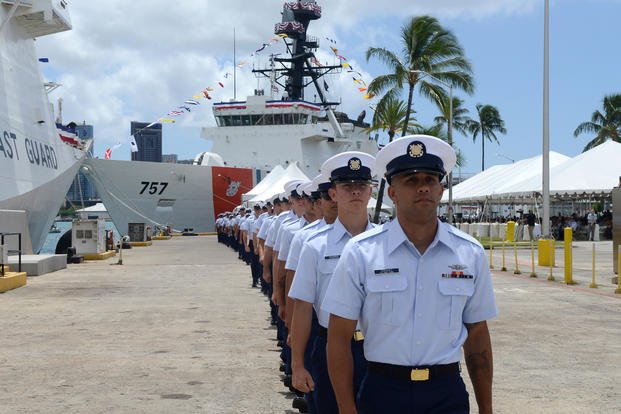

About 41,000 active-duty men and women serve in the Coast Guard, the smallest branch of the U.S. armed forces and one that stands as the nation's first line of defense against maritime threats. It is responsible for protecting and defending more than 100,000 miles of U.S. coastline and inland waterways.
The Coast Guard handles multiple missions on top of maritime law enforcement, including search and rescue, marine safety, seizure of illegal drugs and contraband, waterways security and more at ports, air stations, small boat stations, cutters and small craft across the U.S. and worldwide.
During peacetime, the service is nested in the Department of Homeland Security rather than the Department of Defense. While the Coast Guard's culture is unique among the branches, it's linked to many aspects of the history and tradition of the U.S. Navy.
Enlisted Guardsmen are the backbone of the Coast Guard. Each member has his or her own specialized training and fills a role within his or her unit.
Coast Guard requirements to join as an enlisted Guardsman are as follows. You must:
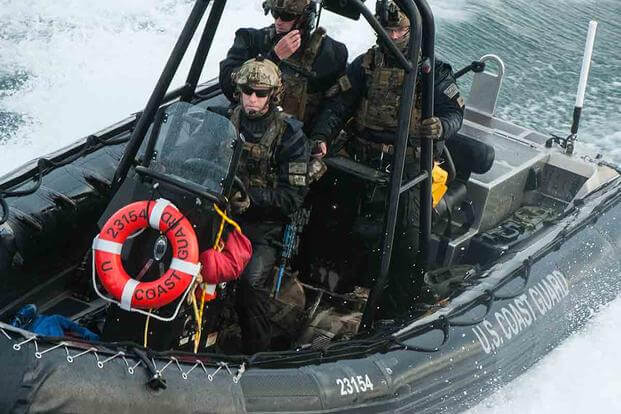
The Coast Guard’s Maritime Security Response Team (MSRT) from Virginia participates in a training evolution.The highly trained and specialized team, using a real-world underway ferry, practiced tactical boardings-at-sea, active shooter scenarios, and detection of radiological material. (U.S. Coast Guard/Petty Officer 3rd Class Ross Ruddell)
The Coast Guard offers a multitude of opportunities for professional specialization. Officers can be charged with law enforcement, humanitarian aid, defense, regulation, environmental protection, diplomacy and literally guarding the coast.
To join the Coast Guard as an officer, you must:
Although the Coast Guard does not offer an ROTC program, there are other paths to becoming an officer in the service:
The Coast Guard recruitment process begins with working with a Coast Guard recruiter. Recruiters know the ins and outs of the service and can help you navigate the process and make important decisions along the way.
There is no obligation when working with a recruiter. They will help you decide whether the Coast Guard is right for you, and they will help shed light on which job opportunities within the service might be of interest if you sign up.
The Armed Services Vocational Aptitude Battery (ASVAB) is an aptitude test that helps Guardsmen narrow down which field of work is best suited for them. It is designed to evaluate skills in several areas, including math, science, language and technical knowledge such as electronics, automotive and mechanical abilities.
The minimum ASVAB AFQT score for enlisting in the U.S. Coast Guard is 36. Officer programs have different standardized test requirements.
Once an applicant has taken the ASVAB and passed with a qualifying score, the recruiting process moves on to a medical exam at the Military Entrance Processing Station (MEPS).
The basic physical examination includes alcohol and drug testing; a urine check for indicators of glucose, protein, pregnancy and other health indicators; an HIV test; a vision test, including color perception; an ear exam and hearing test; blood pressure and pulse rate; an orthopedic and neurological demonstration and exam; plus an overall exam of the main body systems and organs.
Coast Guard weight requirements are based on body mass index (BMI), which is weight divided by height. Guardsmen must have a BMI between 19 and 27.5, regardless of age or gender.
Coast Guard boot camp, aka basic training, lasts eight weeks and is held at the Coast Guard Training Center in Cape May, New Jersey.
"Boot camp" is mentally and physically tough. Much of your training will take place in a classroom learning first aid, firefighting, weapons handling, practical seamanship and general Coast Guard knowledge. You will have daily physical fitness and water survival classes. You also will learn military drill and the "ropes" of the U.S. Coast Guard.
Your Coast Guard pay begins during boot camp.
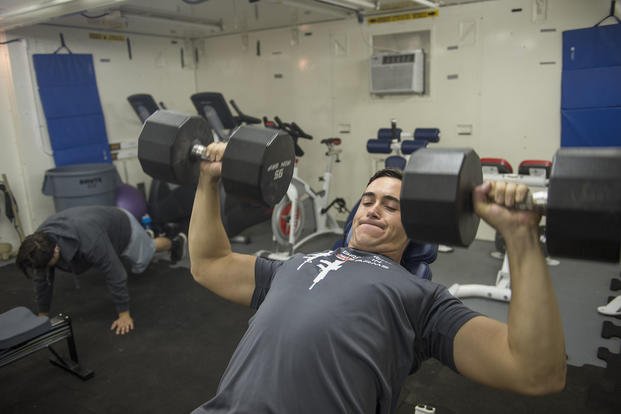
Physical fitness requirements in the Coast Guard are directly linked to "on-the-job" requirements. The Coast Guard Physical Fitness Test (PFT), sometimes simply called the Coast Guard PT test, is designed to measure cardiovascular fitness and muscular endurance.
Coast Guard men and women, who are rescue swimmers, small boat crew members, etc., must comply with the specific physical standards set forth by their position, but here are the general standards for the PFT and the 12-minute swim.
At boot camp, enlisted recruits are expected to perform:
At Officer Candidate School (OCS), officer candidates are expected to perform:
Coast Guard jobs are available in a variety of fields. About halfway through boot camp, recruits make note of their preferences from available assignments at different locations and unit types, and receive their first assignment orders about a week later.
Most recruits, at the beginning, are assigned as unspecialized seamen or firemen. Advanced specialty training follows this period of adjustment. Depending on your skill set and interests, you can get training in a variety of fields, including law enforcement, environmental science, engineering, health care and more.
Some recruits with high ASVAB scores are eligible to enroll in a specialized school immediately following boot camp, bypassing the unspecialized assignments and getting a head start on their careers.
Jobs are available in a variety of fields, including aviation, cybersecurity and information technology, navigation and seamanship, mechanical and electrical operations, diving, electronics, firearms maintenance, medical, machinery and more.

To be sworn into the Coast Guard, you will take the Oath of Enlistment, which is a pledge to defend the Constitution throughout your military career. If you are entering as an officer, you'll instead take the officer's oath.
Joining the Coast Guard comes with a variety of benefits.
When you join the Coast Guard, your paycheck grows as you gain more experience and rise up the ranks. The service also offers a variety of allowances that increase your total compensation. These include free or reduced-cost health care, food, housing, education and more.
An advanced paygrade incentive may be offered to recruits with certain experience, like college credits, JROTC, police and sea explorer programs, or scouting achievements. This can result in an immediate promotion to E-3 paygrade after boot camp -- six months earlier than usual.
You also get 30 days of paid vacation annually.
The Coast Guard has several enlistment incentive programs to meet recruiting goals, such as signing bonuses. These could apply to all recruits, be tied to enlistments within certain time periods, or require qualifying skills, certifications or education.
In 2023, the service introduced a Scout Talent and Refer program, offering $1,000 to any member, retiree, reservist or civilian employee who steers a recruit to basic training.
The Coast Guard also added a bonus program for certain jobs -- signing bonuses of $15,000 to $50,000 for recruits interested in becoming a gunner's mate, culinary specialist or other understaffed rating.
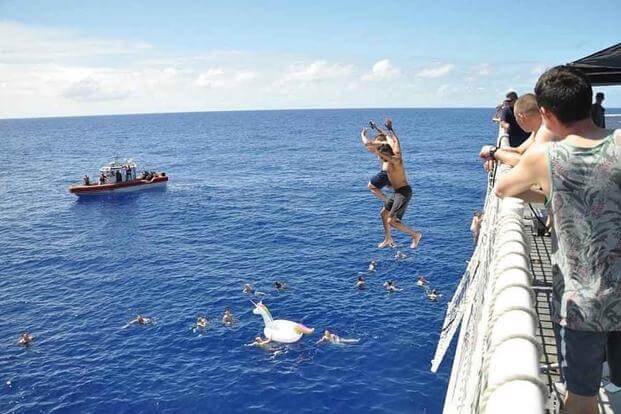
While on active duty, you may continue your education and may be helped in defraying the cost of college-accredited courses.
On top of specialized job training in fields like law enforcement, environmental science, engineering, health care and more, the Coast Guard can fund your college education through the GI Bill and other programs, including Voluntary Education or VolEd.
You'll also have access to hands-on training and professional certifications that can open doors to post-Coast Guard career opportunities. The Credentialing Opportunities On-Line (COOL) program will reimburse the training necessary to obtain certain certifications. You may use the CG COOL program to enhance your skills, either in your current specialty or in an occupation you would like to pursue when you leave military service.
Additionally, the Coast Guard Institute offers the following programs:
Learn more about the Coast Guard's educational programs here.
The Coast Guard offers a variety of in-person and online courses and resources geared toward leadership and professional development.
For Guardsmen seeking specific credentials, the Credentialing Opportunities On-Line (COOL) program offers help with certifications and licenses related to their military occupation and civilian careers. These credentials can help in the job hunt after your Coast Guard career ends.
Full-time, active-duty Guardsmen receive medical, dental and vision coverage for themselves and their dependents. Mental health support is also available.
Active-duty members typically receive medical care through Coast Guard clinics manned by the Public Health Service clinicians and Coast Guard health technicians. Guardsmen's family members usually receive care through the civilian Tricare network. Service members not located near a Coast Guard clinic and their beneficiaries also can get medical care at Defense Health Agency facilities.
Guardsmen can receive discounted life insurance, retirement plan options, financial counseling and legal services.
You also may receive additional tax-free money for Basic Allowance for Housing (BAH) if government housing is not available; Basic Allowance for Subsistence (BAS), if government food facilities are not available in the area you are stationed; and a uniform allowance (for enlisted personnel only) to help maintain your uniform.
Additionally, Guardsmen receive exchange and commissary privileges, moving allowances, temporary lodging expenses, travel, survivor benefits, Veterans Affairs home loans and more.
Content previously published on Military.com and content from gocoastguard.com were used in compiling this report.
We can put you in touch with recruiters from the different military branches. Learn about the benefits of serving your country, paying for school, military career paths, and more: sign up now and hear from a recruiter near you.
Tiffini is a Military.com content editor and writer who oversees editorial content for the site's email newsletters and seasonality pages. A journalist since 1996, she has been a reporter, editor, web producer, social media manager and journalism professor. Read Full Bio
© Copyright 2024 Military.com. All rights reserved. This article may not be republished, rebroadcast, rewritten or otherwise distributed without written permission. To reprint or license this article or any content from Military.com, please submit your request here.

From Recruitment to Readiness: The 6 Critical Fitness Mistakes Every Future Service Member Must Avoid
Whether you're aiming for the conventional military or a career in special operations, there are best practices you should.

Thirteen former cadets at the U.S. Coast Guard Academy accused overseers of the Connecticut school of failing to prevent.
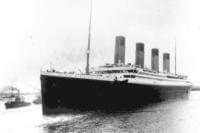
The location of a bronze statue not seen in decades is among the discoveries made by the company that owns the salvage rights.
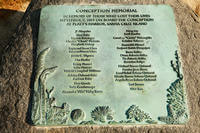
Five years after California's worst modern maritime disaster, relatives of the Conception boat fire victims are angry about.